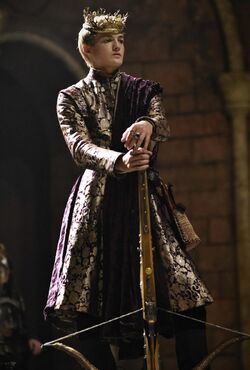To surmise, Machiavelli stated that a ruler should try to be good, but should be willing to cross the line if need be. However, he should be careful to ensure that he is noted hated, as that can be a death sentence. When it comes to stepping over the line, the poster should give a clear indication that Underwood has no problems getting his hands dirty.

(He also has no problems with stealing the statue of Lincoln from the Lincoln Memorial...the Monster)
If Underwood needs to bribe someone he does; if he needs to bust someone out of prison; he'll do so, and if he needs to kill someone, he'll get them drunk, drive them home, and then leave them to die as their car fills with carbon monoxide. Reviewers have often used the word 'pragmatic' to describe Underwood's character, and its a pretty fair judgement. Despite his clear disdain for those he works with, I never got the sense that Underwood ever ruined someone just to ruin them. If ruining someone fit into his goals for obtaining power, he did it, but he never went out of his way to do so.
So Underwood is clearly willing to take the bloody road to power, if he needs to. At the same time, unlike Tyrion, people like him. Of course, he has enemies, but they only become enemies after he's robbed them of their power and influence (as the rep for teacher's union finds out the hard way). In addition, he expertly plays the part of a generally nice guy. He intervenes to help the Chief of Staff's son get into Stanford, he takes the lead on the education bill, and he masterminds a plan to win the governorship of Pennsylvania for the Democrats. He does all of this after he is passed over for the position of Secretary of State, which makes the president think 'Gee, what a great guy!' Thus, no one in power is out to get him, and his constituents seem to be pretty cool with him as well (he handles the peach incident with a lot of political flair in class).
Underwood's Machiavellian skills also extend to his wife. As the head of a NGO that builds wells in Africa, its easy for her to convince others that her goals are noble. Granted social improvement has been used by people to gain power for most of history (the first national healthcare system was instituted under Otto Von Bismark in Imperial Germany), but Claire Underwood is pretty good at portraying herself as just interested in helping others. And in fairness, she does appear to show real concern when the Sudanese government refuses to unload her supplies. However, unlike Underwood, she occasionally lets her emotions get the best of her. Throughout the show, its implied that she is undergoing menopause and she is jealous of her pregnant co-worker, which inadvertantly leads to her getting sued.
So Underwood seems to have the Machiavellian thing down, but his actions seem to suggest a flaw in Machiavelli's philosphy. The show is titled 'House of Cards' for a reason, suggesting that the tower to power that he built is very unsteady. Indeed, the finale episode concludes, its implied that Zoe Barnes, his former lover and collaborator, is going to expose his crimes to the world. This opens up an interesting question, of what a ruler should do if the public were to find out about the terrible things that he has done. Machiavelli writes that a ruler should do any cruel actions at the beginning of his reign, but Underwoods actions are parceled out, and grow worse and worse as the season progresses. That being said, Underwood can use his influence to inspire fear when need be, and he does have leverage over Barnes in the form of some 'unflattering' photographs he's taken of her. Time (aka Season 2) will tell whether Underwood's house of cards will tumble, but for now he seems to have mastered the Machiavellian ladder to power. Whether he continues to climb or is falls from said ladder remains to be seen...

